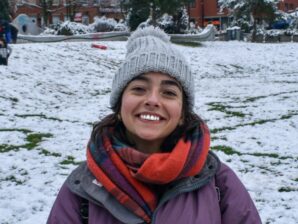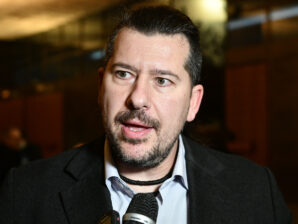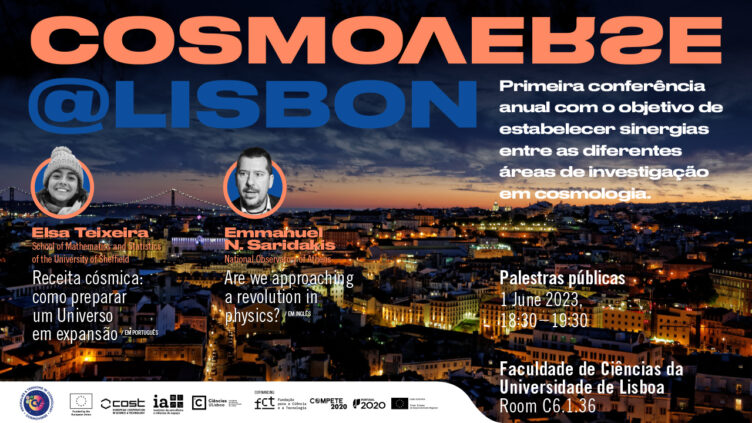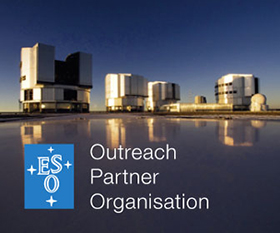Which ingredients are needed to bake a Universe as we know it? Will the huge amount of data obtained daily in astronomy lead to a revolution in the current theories of Physics?
These will be the subjects of the two public talks of the Cosmoverse@Lisbon Conference, the first annual conference in a series of conferences that aim to establish a synergy between the different research areas in cosmology, and foster a sustainable network based on interdisciplinary research, in order to confront the growing challenges of tensions in cosmological survey data.
The talks will take place on Thursday, the 1st of June, at 18:30, in room C6.1.36, of the Science Faculty of the University of Lisbon.
Programme
Cosmic recipe: how to prepare a Universe in expansion (talk in Portuguese)
Understanding the content and dynamics of the Universe and how to reconcile them with current precision observations is the main focus of modern Cosmology. The most well-accepted paradigm introduces two unknown components to the standard model that govern the dynamics of the Universe at present times: Dark Energy, proposed as the source for the acceleration, and Dark Matter, needed to make formation of structures in the Universe possible. Together, these two mysterious components should make up about 95% of the matter and energy content. In this talk, we will look at the ideal recipe and shopping list of all the ingredients needed to bake the Universe just like we observe it.
 Elsa M. Teixeira holds a MSc in Astrophysics and Cosmology from the Faculty of Science of the University of Lisbon (Ciências ULisboa) and as part of the Institute of Astrophysics and Space Sciences (IA). She is currently finishing a PhD degree at the School of Mathematics and Statistics of the University of Sheffield where she has looked at various theoretical formulations for the late time physics of the Universe and how to test them against current observational data. She is preparing to start a postdoc in Montpellier, France to continue investigating the source of the current observational tensions in the standard model of Cosmology. Elsa is passionate for creative outreach and public speaking as a tool for making science accessible and fascinating to everyone.
Elsa M. Teixeira holds a MSc in Astrophysics and Cosmology from the Faculty of Science of the University of Lisbon (Ciências ULisboa) and as part of the Institute of Astrophysics and Space Sciences (IA). She is currently finishing a PhD degree at the School of Mathematics and Statistics of the University of Sheffield where she has looked at various theoretical formulations for the late time physics of the Universe and how to test them against current observational data. She is preparing to start a postdoc in Montpellier, France to continue investigating the source of the current observational tensions in the standard model of Cosmology. Elsa is passionate for creative outreach and public speaking as a tool for making science accessible and fascinating to everyone.
Are we approaching a revolution in physics? (talk in English)
The history of physics, and of science in general, is the history of tensions between theoretical predictions and new observations/experiments that eventually lead to scientific revolutions. We make theories that can describe Nature, whose predictions are in agreement with all observational and experimental data. However, the advance of technology allows for more accurate data, creating tensions with our theories and forcing us to build new ones. The huge amount of data that astrophysics and cosmology of the 21st century provide us, demands new theories. Most probably, we are approaching a revolution in physics.
 Emmanuel N. Saridakis has a PhD in Particle Cosmology from Athens U. Greece and he has worked as a post-doc and professor in France (Saclay and IAP), in the USA (Baylor U.), in Chile (PUCV), in the P.R. China (Tsing Hua, USTC) and in Greece (NTUA). He is a Principal Researcher at the National Observatory of Athens. He has more than 250 scientific and internationally recognized publications in the fields of astrophysics and cosmology. He is an expert in science popularization with many public talks, articles and wide presence in the media.
Emmanuel N. Saridakis has a PhD in Particle Cosmology from Athens U. Greece and he has worked as a post-doc and professor in France (Saclay and IAP), in the USA (Baylor U.), in Chile (PUCV), in the P.R. China (Tsing Hua, USTC) and in Greece (NTUA). He is a Principal Researcher at the National Observatory of Athens. He has more than 250 scientific and internationally recognized publications in the fields of astrophysics and cosmology. He is an expert in science popularization with many public talks, articles and wide presence in the media.
The Cosmoverse@Lisbon Conference is organized within the Cost Action initiative CA21136 – Addressing observational tensions in cosmology with systematics and fundamental physics (CosmoVerse).
Share
Duration:
1 hourFree entrance
Location
Science Faculty of the University of LisbonCampo Grande, Building C6, 1st Floor, Room 36 (6.1.36)


